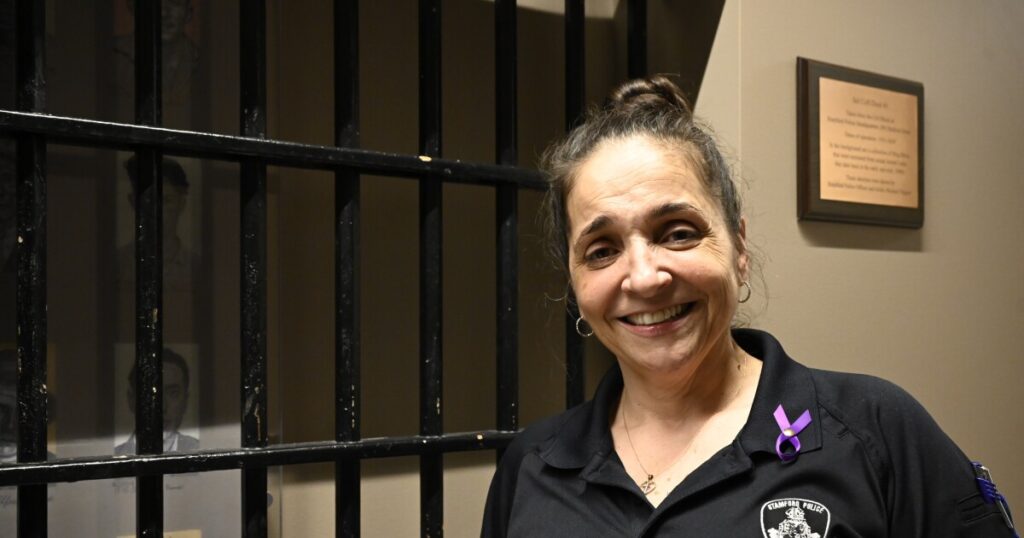Sergeant Adriana Molina said many Stamford residents call her by name when they contact police for help, especially in a mental health crisis.
“You just have to listen to them, listen to what they have to say, and make them feel validated,” Molina said.
Molina leads the police department's behavioral health unit, which connects residents with mental health resources. Through this role, Molina developed deep and lasting connections with the city's Latino population. Many of them grew up distrusting the police in their home countries.
Molina grew up in Colombia and said her background makes it easier to build connections through trust and empathy. Molina said being able to reach this segment of her population has also helped her break down cultural taboos around mental illness.
“I was very happy that I could not only speak (the language) but also understand the culture,” Molina said.
The behavioral health unit, made up of police officers and social workers, responds to calls from people experiencing mental health crises.
The unit was created in 2020 in response to protests over police brutality, including the death of George Floyd. Police officers are trained in de-escalation techniques. Molina was soon asked to run the unit.
She said she recognizes that getting help depends on cultural practices, especially for the city's rapidly growing Latino population. They make up nearly 30 percent of the city's population, according to the U.S. Census Bureau.
She began her police career helping Spanish-speaking assault victims.
According to Molina, speaking Spanish is an asset, but having a deep understanding of cultural taboos around mental illness is extremely helpful.
“I think it's important to acknowledge cultural differences and acknowledge their beliefs,” she says.
According to the federal government, many Latinos are less likely to access mental health services due to a combination of factors, including a lack of resources and cultural attitudes toward mental illness.
Molina said mental illness within the Latino community is often explained as a result of weakness or “brujeria,'' a word that means witchcraft and is widely used throughout Latin America.
She said she approaches mental health by praising people who are able to admit when they don't feel well.
“Getting help doesn't make you weak. Getting help makes you a warrior,” she said.
Molina is more than just a mental health advocate. Many Latinos in the city continue to interact with her out of trust in her.
Molina showed a video created by a group of local day laborers to Connecticut Public Broadcasting, congratulating her for recently receiving the Stamford Civic Award, becoming the first police officer and possibly the first Latina woman to receive the award. did.
The award was first established in 1945 and is sponsored by Fred Robbins Post 142 and the American Jewish Veterans Association. We also provide scholarships to high school students.
Previous recipient Jami Sherwood currently serves as program coordinator for the Stanford Citizen of the Year Award. Sherwood said the award is given to people who are passionate about serving their communities.
“You see that especially in someone like Sergeant Molina,” Sherwood said.


